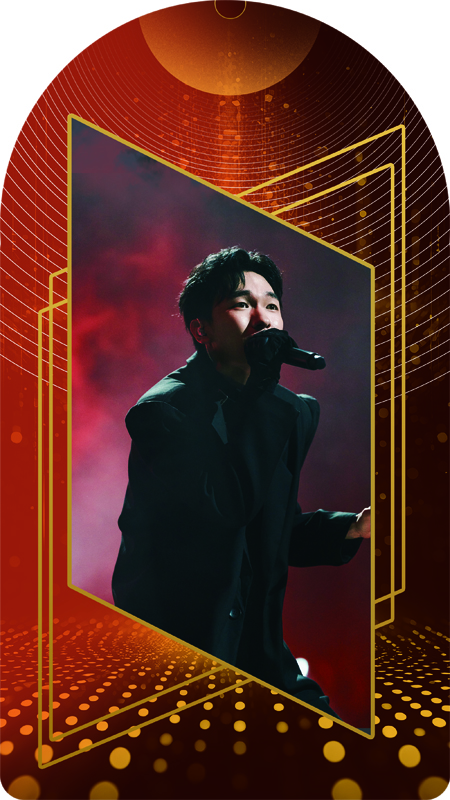Rap meets tradition


In primary school, his parents didn't allow him to use a smartphone, so he relied on an old-fashioned phone to download and listen to music. This limitation inadvertently led him to discover rap.
In 2019, Zhang Fenghe participated in "8 Mile Underground", a rap competition, for the first time. He made it to the top four in the Guangzhou division, earning recognition for his talent.
Encouraged by this success, he founded a student rap club at his high school, where he discovered that many of his peers shared his interest in and knowledge of rap.
"Rap is indeed very popular among young people," he said. "At the time, more than 60 students applied to join our club, and we ended up recruiting over 20. Every day, we would bring a speaker and microphone to the area next to the basketball court and rap."
Zhang Fenghe recalled that for a long time, "technical rap" was held in high regard. Compared to lyrical content and musicality, this type of rap prioritizes complex rhythms, tempo changes, fast rapping, and advanced flow techniques.
"When I first started listening to rap, I was drawn to Eminem (the US rapper known for his technical expertise). Naturally, I gravitated toward creating technical, fast-paced rap at the beginning," he said.
"But in recent years, rap has been gradually simplifying. The technical aspects are fading, with rappers focusing more on the vibe and the emotions conveyed to the audience. Listeners now care more about the overall sound and whether the music feels good," he added.
Zhang Fenghe also finds inspiration in emerging styles, such as rage rap — a genre characterized by aggressive and avant-garde elements. This style often expresses anger and chaos through intense rhythms and layered sounds, reflecting the raw energy of its creators.
He highlighted Playboi Carti, a Gen Z pioneer in this field, as a key influence. He was particularly impressed by Carti's innovative use of his voice as an instrument that complements the music rather than dominating it.
For Zhang Fenghe, this boldness and willingness to experiment and innovate are the defining characteristics of the younger generation of rappers.
"Around 2017, everyone seemed to take pride in their technical skills. But the younger artists who emerged later didn't care much about their technical prowess; instead, they embraced the mindset of 'I'm playing with something new and trendy,'" he said.
What Zhang Fenghe is trying to do now is incorporate the Chinese language and cultural concepts into the world's latest and most cutting-edge music styles.
"This may not yet be considered a complete innovation because I don't yet have the ability to create an entirely new realm. But pioneering a new field is the dream of every musician," he said.




































